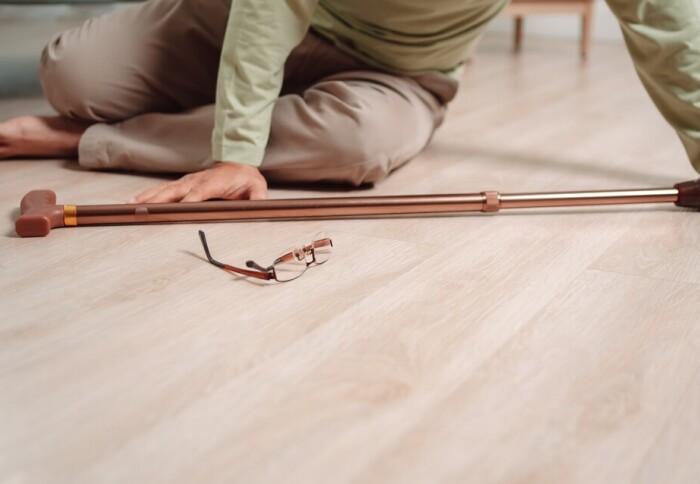Dizziness in older adults linked to higher risk of future falls
by Samantha Rey

The first meta-analysis of its kind has shown that older adults experiencing dizziness are significantly more likely to fall in future.
Dizziness is a term used to describe sensations such as vertigo, imbalance, light-headedness, and disorientation. It is common in older adults, affecting one in three of those aged 65 years and older. For the first time, dizziness has been confirmed as an independent predicting factor for falls.
Researchers at Imperial assessed the link by systematically reviewing and meta-analysing 29 peer-reviewed research studies, involving a total of 103,000 participants.
"Older adults with even non-bothersome dizzy spells should make an appointment with their GP, to enable early diagnosis and treatment to prevent falling." Dr Toby Ellmers Department of Brain Sciences
They found that older adults who experience dizziness were over 60% more likely to fall in the future, even considering other factors that might have contributed to a risk of a fall. In a further finding, individuals with dizziness had approximately double the likelihood of falling more than once.
Dr Toby Ellmers at the Centre for Vestibular Neurology, Department of Brain Sciences at Imperial College London, senior author on the study said: “Our study conclusively shows that older people with dizziness are at high risk of experiencing falls.”
Falls are the most common cause of death from injury in the over 65s. The National Institute for Health and Care Excellence (NICE), which provides guidance and advice on health, estimates that falls cost the NHS £2.3 billion per year and over 4 million bed days. Hip fractures from falls affect mobility and quality of life, and can lead to increased institutionalisation and mortality.
Although dizziness is common, the researchers say it is caused by specific and distinct diagnoses with specific treatments and even cures. They stress that dizziness shouldn’t be viewed as a ‘normal’ part of ageing.
The most common causes of dizziness in older people include: Benign Positional Vertigo, where crystals in the inner ear’s balance system become dislodged; orthostatic hypotension, due to blood pressure falling on standing; and a form of migraine called vestibular migraine.
Dr Ellmers noted that dizziness is the commonest reason for patients to be referred to his Imperial colleague’s general neurology clinics, highlighting that awareness of the problem was important amongst clinicians.
Dr Ellmers said: “Older adults with even non-bothersome dizzy spells should make an appointment with their GP, to enable early diagnosis and treatment to prevent falling. That will help to avoid a hospital admission or worse.”
This work was supported by a Wellcome Trust Sir Henry Wellcome Postdoctoral Fellowship awarded to Toby J. Ellmers (Grant Number: 222747/Z/21/Z), and by a Lee Family Scholarship awarded to first author, PhD student Yuxiao Li.
Association between dizziness and future falls and fall-related injuries in older adults: a systematic review and meta-analysis is published in Age and Ageing.
https://academic.oup.com/ageing/article-lookup/doi/10.1093/ageing/afae177
Article supporters
Article text (excluding photos or graphics) © Imperial College London.
Photos and graphics subject to third party copyright used with permission or © Imperial College London.
Reporter
Samantha Rey
Communications Division